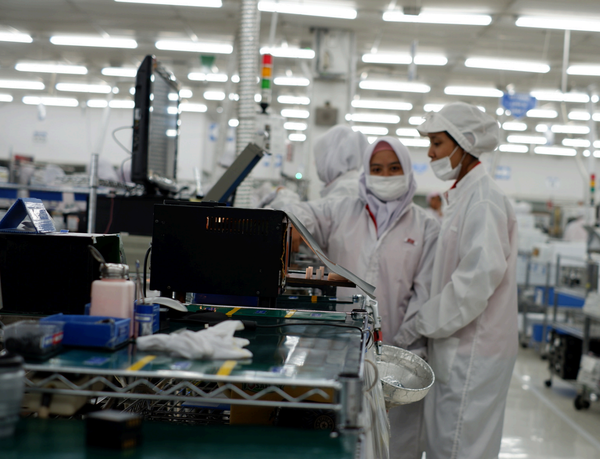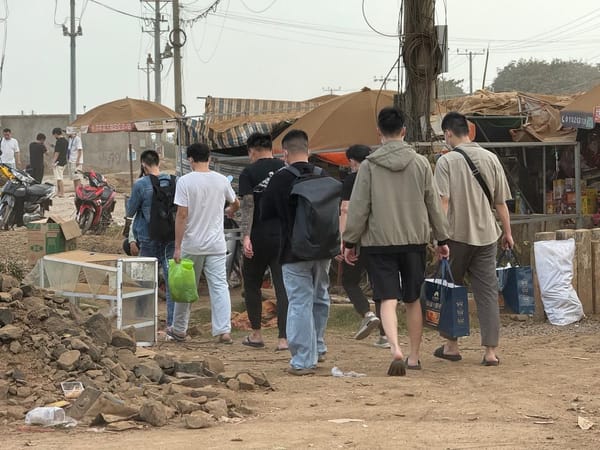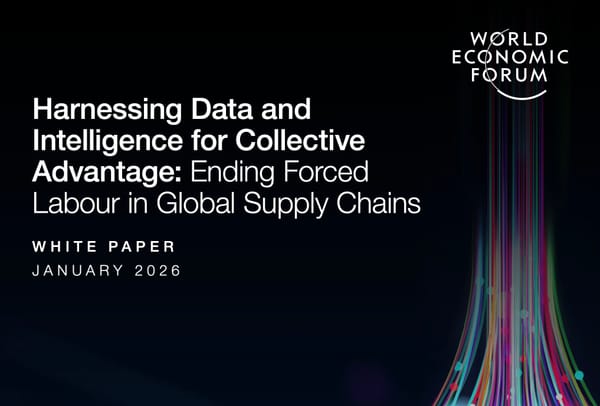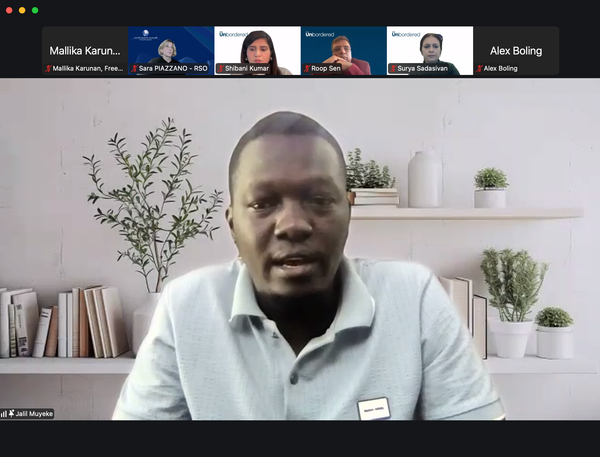Anti-trafficking efforts should be formally recognized as life-saving work
An overview of the global response to human trafficking calls for increased coordination among stakeholders, campaigners call on Australia to act against modern slavery, and UK victims reject government support for fear of deportation.
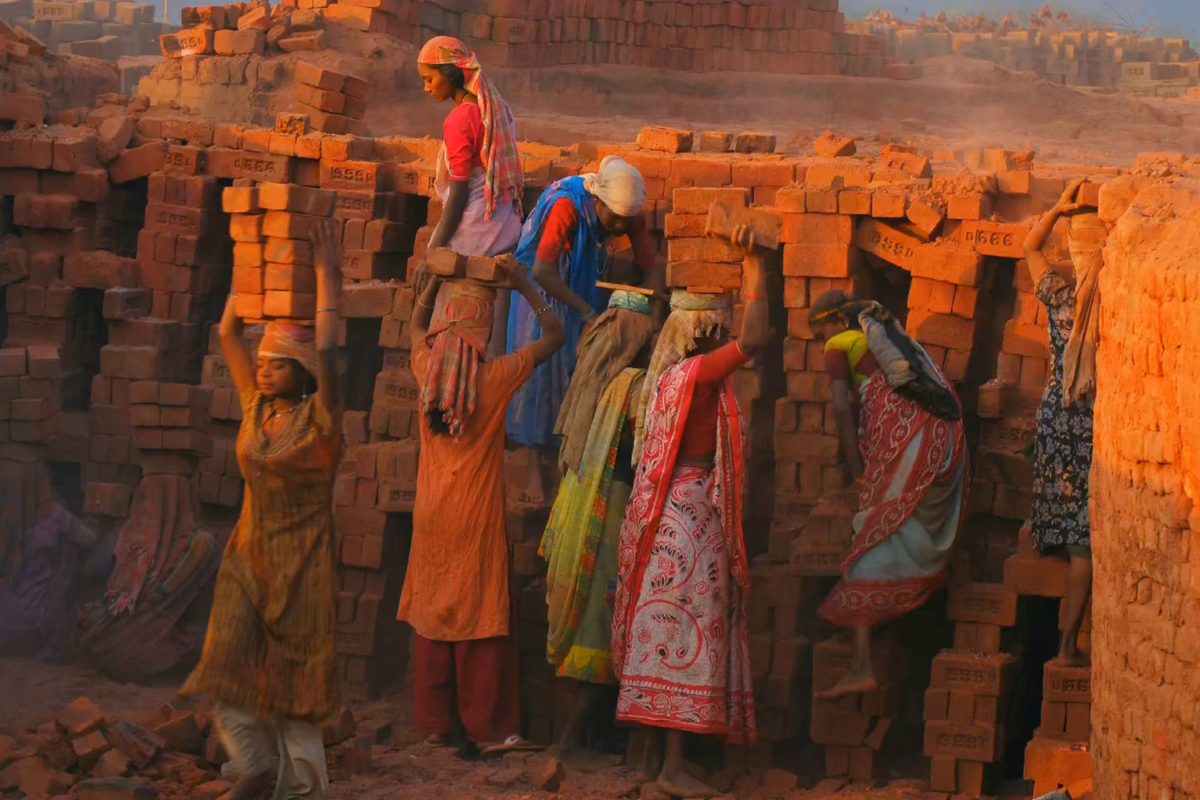
Activities aimed at eliminating human trafficking and modern slavery should be formally recognized as life-saving interventions across the humanitarian system, while coordinated action from international actors to prevent trafficking should be elevated as a key protection issue in crisis contexts, according to a new report from the Global Commission on Modern Slavery and Human Trafficking.
At a time when people’s vulnerabilities to modern slavery are increasing dramatically, the world’s capacity to respond seems to be reducing and modern slavery is falling down the political agenda as other crises and domestic concerns take precedence, the authors note, saying that, “Few politicians or government ministers see their success as being measured in their impact in combating modern slavery and human trafficking. Few international organizations, responding to the world’s major humanitarian crises, see tackling these crimes as a matter of life-saving response. Few businesses understand how their ambitions and hard work are tainted by these human abuses in their supply chains.”
“No country is immune: working together to end modern slavery and human trafficking” explores how governments, businesses, civil society and the public could work together to reduce, and ultimately eradicate, modern slavery and human trafficking. It looks at the legislative role of governments and international bodies, the good practices companies should adopt if they are properly to identify issues in their supply chains, and the role of civil society organizations (CSOs) in crisis contexts noting that, while this has been a little-considered aspect of international operations, it is one which is vitally important in reducing vulnerability to slavery and trafficking in areas of humanitarian crisis.
The chapter “Civil society and crisis contexts” was written in support of a new analytical framework created for the Global Commission by a team from Oxford University, and highlights the critical importance of addressing human trafficking and modern slavery within global protection efforts. The framework is designed to assist international non-governmental organizations (INGOs) and CSOs in identifying potential victims of modern slavery and human trafficking, and to help them better understand the underlying cultural and societal norms that push people into situations in which they are exploited.
For effective implementation of international commitments and national legislation, the Global Commission recommends that: Member States of the United Nations who do not have domestic legislation enacting their international legal obligations on slavery should enact such legislation, while Member States with inadequate domestic legislation should revise it to make it comprehensive and reflect their international obligations in full; all Member States should ensure they have effective arrangements in place to enforce the legislation; and the United Nations should assist Member States by establishing a legal definition of modern slavery and human trafficking which could be used in domestic legislation.
The UN Guiding Principles on Business and Human Rights (UNGPs) should be the foundation for how governments and companies address modern slavery, the commission says in its recommendations for addressing forced labour in global supply chains. Governments should move beyond voluntary measures and enact well-designed legislation mandating HRDD for companies, in full alignment with the UNGPs, while companies should develop a robust set of good practices using the UNGPs framework. Furthermore, companies should explore worker-driven models and the power of contracts to develop responsible practices in areas with known links to forced labour and worker exploitation, such as recruitment, procurement, wages, and working conditions.
International organizations (IOs) and INGOs, especially those directly involved in humanitarian work, should explicitly recognize anti-slavery and anti-trafficking efforts as part of their institutional strategies, the report suggests, while national and regional bodies such as the African Union, European Union, Community of Latin American and Caribbean States, and Association of Southeast Asian Nations, should work with other key stakeholders to establish strong regional alliances and ensure better coordination of anti-trafficking and anti-slavery efforts at a regional level. These alliances should comprise CSOs, IOs, INGOs and relevant national authorities on labour, law enforcement and social welfare.
Here’s a round-up of other noteworthy news and initiatives:
A new study from New York University and The Freedom Fund offers direct insights into the pre-migration process for Ethiopian women seeking employment in Saudi Arabia, following the launch of a joint initiative between the two countries to regularize the migration process. The findings show that reforms have the potential to strengthen protection for Ethiopian migrant domestic workers, but also emphasize the need for stronger oversight, enforcement against violations, and clear, accurate communication about migration.
This week, the newly formed Australian International Counter Slavery Alliance (AICSA) called on the Australian Government to do more to address modern slavery in Asia and the Pacific, noting that modern slavery in the region is complex and evolving, with new trends emerging in human trafficking and forced scamming. Current responses are failing victims and survivors, it says, with low rates of victim identification and few prosecutions, while regional resources to combat modern slavery have collapsed following the withdrawal of USAID funding.
The United States has blocked imports of sea salt products from a major South Korean salt farm accused of using slave labour, becoming the first trade partner to take punitive action against a decades-long problem on salt farms in remote islands off South Korea’s southwest coast. U.S. Customs and Border Protection issued a withhold release order against the Taepyung salt farm, saying information “reasonably indicates” the use of forced labour at the company in the island county of Sinan, where most of South Korea’s sea salt products are made.
Thousands of trafficking victims in the UK are rejecting government support because they fear being deported or have little trust in the authorities, according to new data. Information obtained by The Observer newspaper further reveals that thousands of trafficking victims from Albania and Vietnam – where many victims come from – were returned to these countries after engaging with the UK’s National Referral Mechanism, which currently has a significant backlog.
Hundreds of people released from online scamming centers, mostly Ethiopians and other African nationals, protested along the Moei River on the Myanmar-Thai border on Sunday after being detained in territory controlled by the DKBA, an ethnic armed group, for more than two months. Thai military personnel, along with administrative officials and law enforcement, have reinforced security along the border to prevent illegal crossings, with the Thai Government blaming origin countries for failing to facilitate repatriation efforts.
OHCHR’s Working Group on Business and Human Rights is calling for inputs for a report on “Labour Migration, Business and Human Rights”, with a deadline of 30 April. It seeks to assess the extent to which States and businesses are upholding their respective duty and responsibility to protect and respect the human rights of migrant workers in a cross-border context, in line with the UNGPs and other relevant standards, aiming to provide further guidance on the labour dimension of the UNGPs and, in particular, how they can be implemented through a migrant worker-centered lens.

